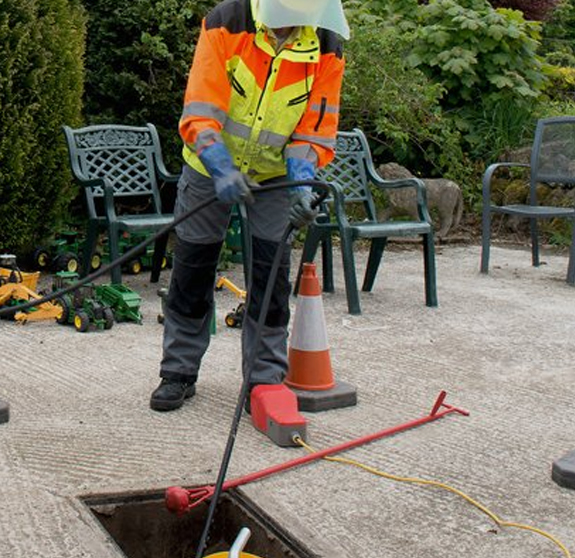Tips for Dealing with a Blocked Drain Before Contacting Plumbing Professionals
Tips for Dealing with a Blocked Drain Before Contacting Plumbing Professionals
Blog Article
We have found this great article relating to How to handle a clogged drain in your home directly below on the net and figured it made good sense to discuss it with you on this site.

Introduction
Taking care of an obstructed drain can be an aggravating experience, disrupting everyday activities and possibly triggering damage to your residential or commercial property. However, prior to reaching out to plumbing professionals, there are steps you can take to resolve the problem on your own. In this overview, we'll discover DIY options and safety nets to tackle a blocked drain properly.
Determining the Concern
The primary step in addressing an obstructed drainpipe is recognizing the indicators. Slow-moving drainage, gurgling noises, foul odors originating from drains, or water backing up are common signs of a blocked drain. Determining these signs early can aid stop even more problems.
Typical Reasons For Blocked Drainpipes
Recognizing the factors that contribute to drain pipes clogs is important for efficient resolution. Common culprits consist of hair, soap scum, oil, food particles, and international items like hygienic items or paper towels. Tree roots attacking underground pipelines can likewise create considerable clogs.
DIY Solutions
For small clogs, a number of do it yourself options can be reliable. Putting boiling thin down the drainpipe can assist liquify oil and debris. Baking soda and vinegar or a blend of salt and baking soda can act as natural cleaners. Using a plunger or plumbing snake to dislodge blockages is another alternative.
Devices and Equipment
Having the right tools on hand can make do it yourself drainpipe cleansing a lot more reliable. A plunger is a functional device for removing clogs in sinks, commodes, and showers. A plumbing serpent or auger can get to much deeper blockages, while drainpipe cleansing chemicals can be utilized cautiously for stubborn clogs.
Safety nets
To stay clear of future clogs, embracing preventive measures is crucial. Set up drain guards or filters to catch hair and debris before they get in the pipelines. Frequently flush drains with hot water to liquify oil buildup, and prevent disposing of grease or strong waste away.
When to Call a Professional
While DIY remedies can settle minor obstructions, particular signs show the need for specialist aid. Relentless blockages, foul odors regardless of cleaning efforts, or several drains pipes supporting at the same time are warnings that call for professional treatment.
Choosing the Right Pipes Service
When choosing a pipes solution, consider elements such as experience, licensing, and customer reviews. Choose a credible plumbing professional with a track record of quality handiwork and clear rates techniques.
Cost Considerations
The expense of professional drain cleaning services can vary depending upon the extent of the clog and the plumber's rates. Request quotes from numerous companies and inquire about any service charges to make certain transparency and prevent surprises.
Safety and security Precautions
When trying do it yourself drainpipe cleansing, prioritize safety and security. Put on safety handwear covers and eyewear to prevent contact with hazardous chemicals or microorganisms. Never mix various drainpipe cleaning items, as this can produce hazardous fumes.
Instance Studies
Real-life instances highlight the performance of DIY remedies and the value of timely specialist intervention in dealing with drainpipe blockages.
Final thought
By complying with the pointers outlined in this overview, you can efficiently deal with obstructed drains pipes and avoid future pipes problems. Whether choosing DIY options or looking for specialist support, punctual action is essential to keeping a healthy plumbing system and protecting the honesty of your home.
HOW DO PLUMBERS AND DRAINAGE EXPERTS CLEAR BLOCKED DRAINS?
Most of us have dealt with a backed up drain at some point in our lives! Whether it’s in our home or at our business, when the toilet begins to overflow or the sink doesn’t drain properly, we ultimately seek help from professionals to clear wastewater lines and get things flowing again.
Sure, you can attempt every possible drain hack in the hopes that your line clears but, often, it’ll require more than just pouring something down the drain. Keep in mind too, that pouring acid-based liquid cleaners down your drain can result in even more problems. If unable to clear – and pass through – the clog, it’ll sit in the line and begin to eat away at the pipe. Calling a plumber or professional to clear your drain might be your last resort but it’s the proven result. So, what do they do, and what type of equipment do they use, to get rid of a blocked drain line?
How Do Plumbers And Drainage Experts Clear Blocked Drains?
To better understand exactly where the problem is located, experts will typically start with an assessment and a video sewer inspection. Using non-invasive equipment that enters and exits through the pipe, these cameras offer a look inside the pipe and can spot anything from buildup, to forming clogs, to tree roots to small holes that could be a future problem – in real-time. It can see up to 150 feet of even the hard-to-reach places of the line, so there’s nowhere to hide.
https://www.zoomdrain.com/blog/2023/january/how-do-plumbers-and-drainage-experts-clear-block/

As a passionate person who reads about How to handle a clogged drain in your home, I assumed sharing that post was a smart idea. Sharing is caring. You won't know, you could be doing someone a favor. Thank you for your time. Don't forget to check our website back soon.
Book Report this page